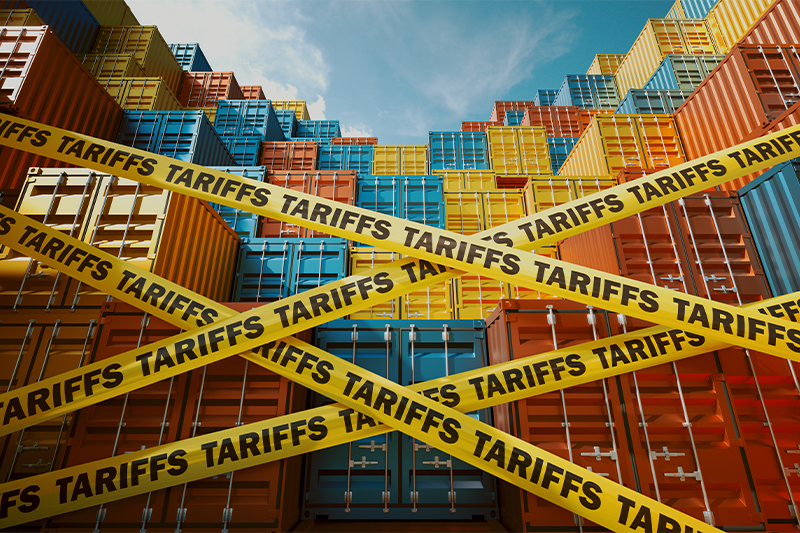US President Donald Trump’s tariffs and trade policy are posing a risk to US exceptionalism and “Trump is in the process of making the rest of the world great again,” according to Jacob Mitchell, chief investment officer and founder of Antipodes, a Sydney-based investment manager.
“We don’t know where tariffs will ultimately land and arguably the Trump administration doesn’t know either,” Mitchell told a Pinnacle-organised webinar.
But while tariffs may be a headwind to global growth, they may not be as bad for China as feared and they may force China to accelerate the rebalancing of its economy, he said.
China’s direct and indirect exports to the US account for about 3.5% of GDP and are the equivalent of about 6% of China’s consumption.
It is well within the capability of Beijing to offset the tariffs with domestic stimulus, although it hasn’t been definitive about the timing of such stimulus and it won’t provide such stimulus if it doesn’t have to, Mitchell said.
China has already introduced measures to stabilise its housing market and that should add about one percentage point to its GDP in 2026 and help to restore consumer confidence in China.
“Chinese households have a lot of firepower to deploy if and when confidence is repaired.”
The excess savings of Chinese households is in excess of US$6.5 trillion, roughly about a third of China’s GDP.
These factors “should be enough to pull China out of its current macro-economic funk.”
By contrast, excess savings in the US built up during covid and the excess stimulus applied during covid has now been depleted and the savings rate is now below the 10-year average – Mitchell puts it at about 5% of incomes, below the long-term average of 7%.
Consumption accounts for about 70% of the US economy, which was starting to look more vulnerable even before the tariffs were announced.
US wages are still growing at about 2.5% a year, above the 25-year average of 1%, and the labour market is still holding together after having been very tight.
Mitchell described it as a “low hiring, low firing environment” but said that if growth slows, and there’s any lift in the firing rate combined with slower job openings, the US economy could tip over into rising unemployment pretty quickly.
Antipodes, which was founded in 2015, has about A$10 billion in assets under management and uses three different strategies, taking a “pragmatic approach” by looking for under-priced opportunities while keeping a focus on capital preservation, Mitchell said.
It has so far weathered five significant market “drawdowns” from the 2016 Brexit shock to the 2020 covid shock and the Trump tariffs in 2025 and its funds have managed to outperform the MSCI index through all of these downturns, he said.
In recent years, markets have arguably been living through a “quality bubble” and quality stocks in the US are now trading at a significant premium to history.
At the end of last year, the top 10 stocks in the S&P 500 Index had accounted for about 30% of the index’s market capitalisation.
But the bottom quintile of US stocks are trading at about 10 times earnings while growing earnings at about 5% - the market has been prepared to pay twice that multiple for the average quality stock which has been growing at roughly the same rate, Mitchell said.
He predicted the “democratization” of AI into applications that move closer to the end users with devices such as wearable glasses, personal assistance within devices, sell-driving cars and robotics.
“It’s very early, but it is happening,” Mitchell said.
Antipodes is also focusing on European industrials and defence companies which will benefit from AI and in particular on global leaders that are trading at a discount to many of their US-listed peers.

![[TMM Podcast] Yelsa serves up “marine reserve” of property buyers](https://www.goodreturns.co.nz/pics/mike%20harvey.jpg)



 Search
Search
